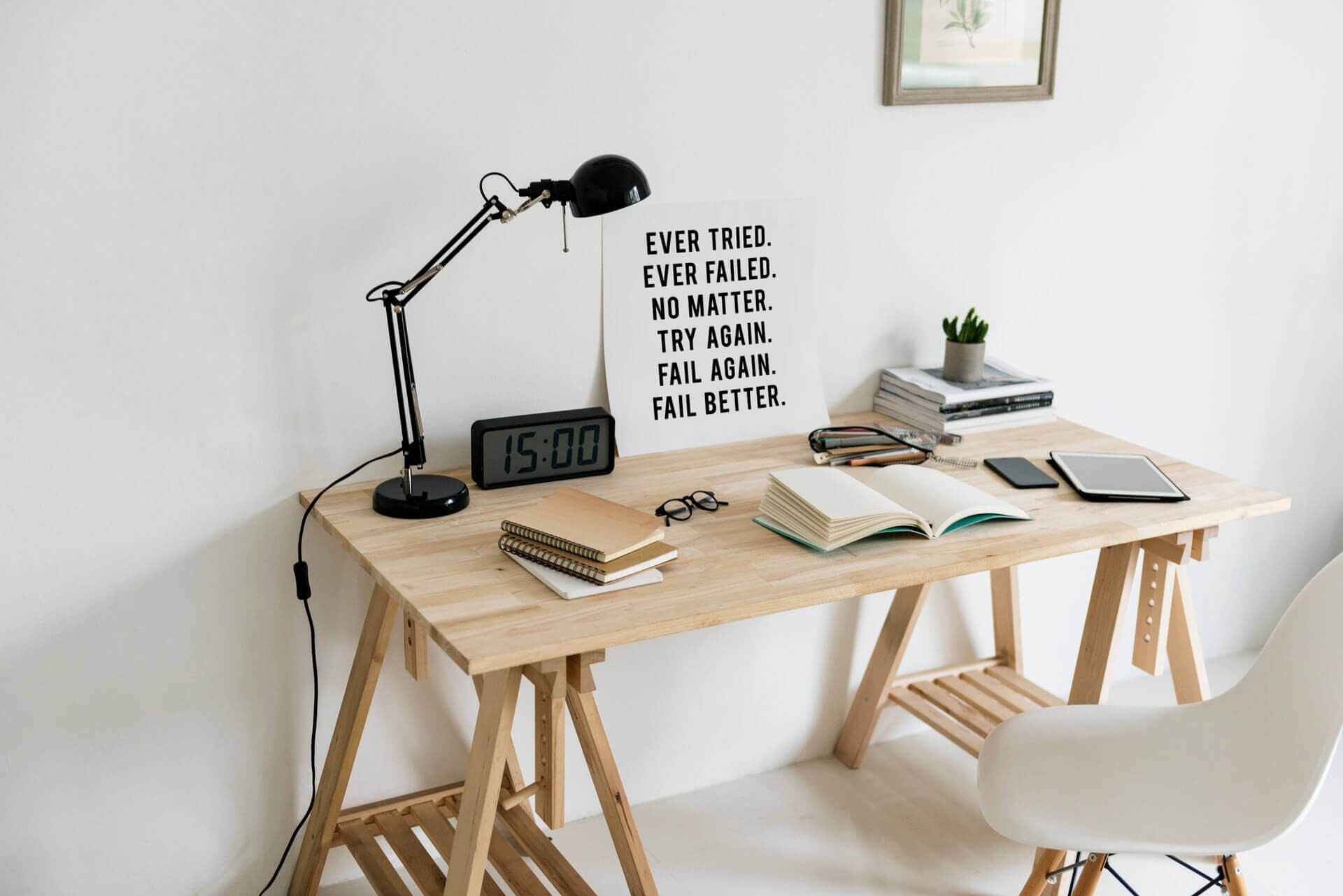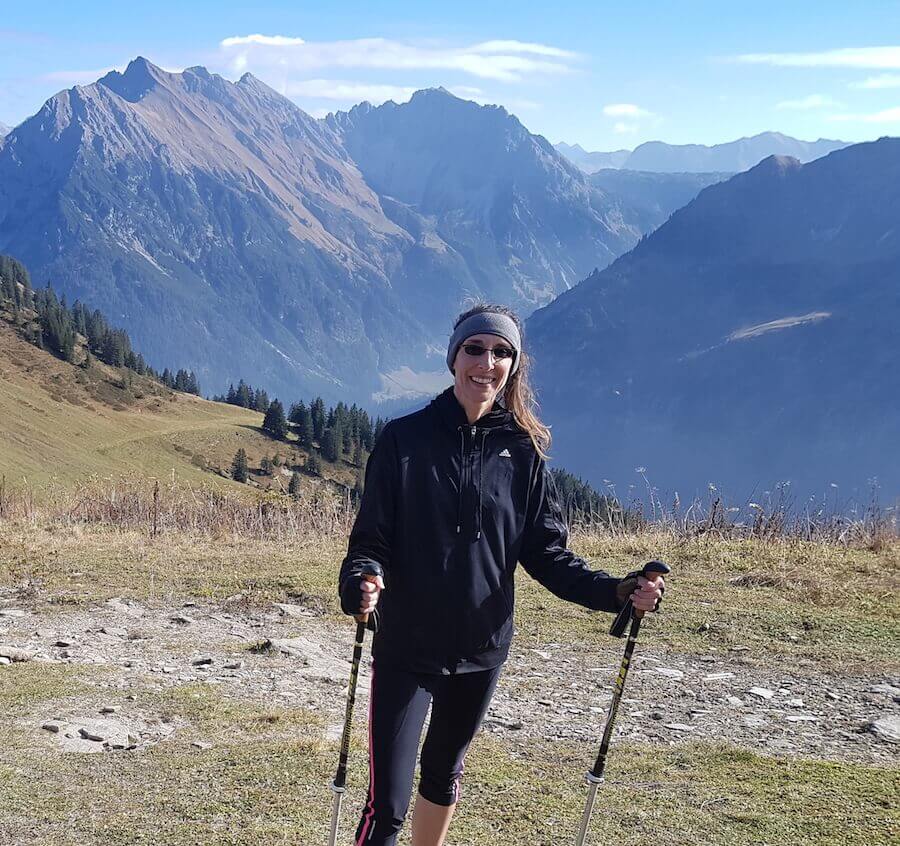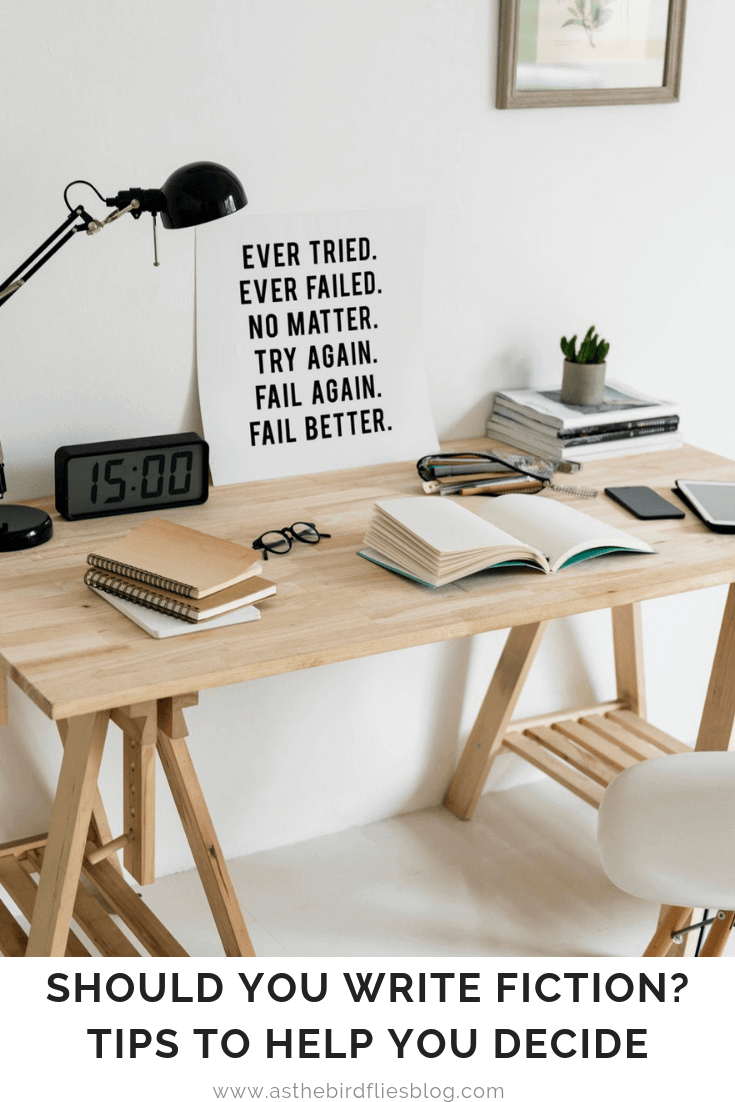On Writing: Should You Write Fiction or Non-Fiction?

Today's post is all about writing fiction or not, as the case may be. It's also about considering whether you should write fiction or non-fiction. It's about writing fiction and encountering real struggle. It's about learning what you should or shouldn't write in order to enjoy and possibly progress your writing journey more. It's about what it's like to get stuck as a writer and to have to make tough but ultimately positive decisions. It's about asking yourself hard questions about what you should or shouldn't be writing, like this one...
Should You Write Fiction or Non-fiction?
To say I could have written this post is an understatement. I could write 100 blog posts about the struggles I've encountered writing fiction, and I could write 100 more about the experiences I've had - good and bad - writing non-fiction, but what I couldn't write is a blog post all about how I learned that I'm definitively not one or the other, because if you've read this blog for more than five minutes, you'll know that I am exactly that; I'm an author of fiction AND I'm a writer of non-fiction (in the form of this blog, client work, my motherhood diary, and much more).
And yet, I can completely understand why some writers come to the conclusion that writing fiction is not for them. That may sound strange as I'm such an advocate of writing fiction for pleasure if not for any other reason, but I've also met lots of highly qualified and brilliantly talented writers who only ever write non-fiction, and the choice between writing fiction or non-fiction doesn't ever cross their minds. They know that they should be writing non-fiction, in the same way that I know I want to write both. But it's not always that easy or obvious a decision or realisation, and sometimes you have to do something for a long, long, hard time to discover that it's simply not for you. And that's what today's guest post by Sara Hauber is about. Sara is a fellow traveller, blogger and writer. She also runs writing retreats set in the beautiful Alps, so yep, you guessed it she's a writer. Sara got in touch with me recently to see if I would be interested in hearing her story all about how she learned that she wasn't a fiction writer, which actually transpired to happen once she already had a publisher interested in her fiction!
After Sara's story, I share some tips from my own experience to maybe help you figure out if you should write fiction or non-fiction.
Now over to Sara...
*****
How I discovered I shouldn't write fiction
It all started with a pitch...
My stomach did a little flip. I wasn’t nervous, per se. It was more like an excitement that prompted my organs to engage in a little gymnastics. I was on the verge of pitching my novel idea, in person, to a publishing house I greatly respected. I never expected to pitch a novel - let alone a YA novel - in person, yet here I was, about to do it.
As always happens when I compete for something (and make no mistake, this was a competition), I felt really calm as soon as the YA editor and sales rep entered the room to sit across from me at the long table. I was good at competition. I had been raised to prove myself, and over the decades I had perfected the art of picking the right competitions and winning them. I wouldn’t have been here if I didn’t know my novel had a great chance of being selected by this very publisher. Or rather, that I would be the right one to sell it to them, in person.
And so I began to talk. I told the YA editor and sales rep all about my novel’s synopsis. We discussed the main character’s struggles, desires, dramas, and backstory. I told them the major plot points, twists, and turns. We talked about comparable books and also my novel's saleability. And at the end of my allotted ten minutes, the editor said, “It sounds great, but it all hinges on the writing. We’d love to see your first three chapters and synopsis.”
Yes! It felt like I'd won the competition, but in reality, it's when my troubles began.
I had already written about 5,000 words of the novel when I’d pitched the story, and I had another 10,000 words in notes and thoughts about my main character, Anni, and her family, friends, and important acquaintances. I loved Anni. I still love her. But I have come to realise that I am not the right person to write her story as a novel. You see, soon after that great publisher basically gave me the green light, almost ensuring that my story would see the light of day, I discovered something horrible that took the novel-writing wind completely out of my sails. I say “discovered,” but I had actually known about this something for almost a decade before I’d seen that pitch competition advertised online and thought, “I could win that!” That little fact that I conveniently forgot and that reared its ugly head only after I had aced that pitch and gotten that amazing publisher totally on board with my story was this: I can’t write characters who are not me.
My problem with writing fiction vs non-fiction
This difficult fact was laid bare for me rather unkindly by an ex-boyfriend of mine about a decade before I pitched this particular novel to this particular publisher. It was 2009 and I had just completed in my first NaNoWriMo. During those feverish four weeks, I’d completed 30,000 words of a different story I still totally believe in. I was so proud and excited to have written every day for a whole month, and to have written fiction for the first time since graduating with an honors degree in English many years before. Shakespeare, Austen, Bronte, Dickens - masters of voice and characters, all - were and are my literary heroes. In my tiny apartment crowded with books written by those heroes of mine, I thrust my typed pages into my ex-boyfriend’s hands: “ This is what I wrote!”
Ten minutes later, his verdict was in: “They all sound the same. I can’t tell which character is saying what.”
No preface, no positive-negative-positive feedback sandwich. No suggestions for how to get my characters’ personalities into their dialogue or how to get their unique traits to come through in black and white words on a page. This man worked in the film industry, and yet not for one second did he think to offer me advice or suggest that we collaborate to get my story into shape.
Maybe it's obvious now why he is an ex?
That night, I threw those 30,000 words into a folder, never to be reopened. And eventually I threw the folder away when I moved overseas.
Trying to write fiction, again.
Fast forward to last summer. One day after the amazing publisher confirmed my belief that Anni’s story deserves to be written, I sat down to start writing again. And I kept writing furiously for the next three weeks. I wrote and wrote and wrote. After 18,000 words, I stopped to let the growing manuscript rest. After a few days, I read what I had. It was immediately clear that all the characters sounded the same. They all sounded like me.
My main character, Anni, is a the 16-year-old, white high-school student who loves 80's punk rock. She should not sound like her 62-year-old African American music teacher who was born in Mississippi. And neither one of them should sound like me: A middle-aged woman from the Midwest with a masters degree in communication. One does not have to be the aforementioned Dickens to know that in fiction writing, that failure to write distinctive characters with distinctive voices simply does not fly.
The fact that I can’t actually make characters come alive on the page is strange to me, because I know an incredible amount about psychology, behavior, and emotions. I have studied and worked with people for decades, coaching them to change their minds and their behaviors, and I know that I have a great understanding of what makes a variety of people tick. But all of that knowledge and all of that understanding and compassion apparently only go so far. I can create a backstory and develop a universe in which a character could realistically exist. I know drama and timing and pacing and all the things that work in great books. What I cannot seem to do is write dialogue and action that makes one character stand out from another: I cannot translate my knowledge of human behavior and psyche into distinguishable humans on the page. No matter how much I wish, I cannot seem to channel Dickens, or Austen, or Bronte on the page.
At first I felt depressed. Here was this incredibly supportive, successful publisher telling me thought my novel was a great idea, that they wanted to see the first three chapters, and I had every confidence that if my writing were good enough, I’d be well on my way to getting my first novel published! I knew I had a choice to make: I could dedicate myself to honing my craft, learning how to get voices other than my own to appear on the page. I could take classes and read tutorials and join a novel-writing feedback group and get all manner of help and direction. I could work really, really, really hard and hope that it fixed these problems.
I could... But I already knew I was not going to do it.
The future of writing and me: Fiction or Non-fiction?
I still believe in Anni and the entire arc and content of her story. But I won’t be writing her novel. I won’t be investing time in learning to develop my characters’ unique voices on the page. Instead, I’ve decided to stick to the writing styles I know, love, and (thankfully) am good at: creative non-fiction, essay, memoir, poetry, and blog posts. It's in these genres that my voice is allowed to come through. I’ll write those genres and probably also enter contests I feel I have a really good chance of winning. And I won’t lament my lack of prowess in the art of fiction writing.
Approximately ten years from now, when I feel the urge to enter another novel-writing competition, just because I think I can win it, I’ll remind myself to read this blog post. I’m already curious to see if I succumb to the urge to try again or if I am finally able to fully embrace the fact that I am simply not meant to be a fiction writer.
About Sara Hauber, your guest author today...

Sara Hauber has spent more than forty years resisting labels. She left academia after earning her master’s degree so she could focus on yoga and understanding the mind-body connection. Since 2011, Sara has blogged at Sara Hauber. She is currently writing an epistolary memoir dedicated to her beloved grandmother, and she’s leading three affordable retreats for writers in the Alps this autumn, and both fiction and non-fiction writers are welcome to attend!
*****
Tips for Deciding to Write Fiction or Non-Fiction
While Sara's post highlights an interesting situation that I'd never thought about before - I apparently have no trouble getting into the heads of made up people! - there are of course many reasons why you may prefer non-fiction to fiction or vice versa. It's also, of course, perfectly fine to want to write both (like I do!). For some people it will never cross their mind to write about anything other than themselves or a real life event or person, while others will only ever want to get lost in a fictional world. Both are equally wonderful and brilliant creative outlets and there is no shame in figuring out (over many years like Sara) if one form is more well suited to you, or perhaps more likely, that one form is really not your cup of tea. Of course, it is also completely fine - incredibly fortunate, in fact - if you want and do write both, but if you often feel a bit confused or conflicted about which one could be your strongest mode of writing, or perhaps which one you would enjoy more, read on for tips so you can give this some thought.
- What do you like to read?
It should go without saying that what you enjoy reading doesn't necessarily dictate what you write, but there is some logic to this being true for some or on occasion for all. My preferred reading choices are often closely aligned to the stories I like to write. It goes without saying that I aspire to write more like many writers I admire (of fiction and non-fiction), and needless to say when you enjoy reading one way or another, it will very likely follow that you will enjoy writing that way too.
There is no shame in writing what you LOVE to write, rather than what you think may sell, or what may be easier to write. How easy things are (or how hard) is relative only to you as the writer, and let me tell you that in almost all cases, if you enjoy what you are writing it will be an easier, more productive and personally profitable experience (and possibly financially too).
* What do you enjoy most about writing?
If you write to escape or to feel, think or experience something different, then it's possible (but not definitively a conclusion) that you will enjoy writing fiction. If you write to document, to process, or to share a real experience, feeling or event then it's possible that you will prefer writing non-fiction. Again, this is not black and white. Personally. I have always kept a diary in one form or another (notebook after notebook of my most personal secrets as a teenager, later a blog and Instagram, and now a five year diary in which I am helpfully limited to just a few lines per day), but I've never taken this to journalling or scrap-booking levels of commitment. By the same token I've always enjoyed making up stories and people. In fact, I find making up people and writing in different voices the easiest of all, unlike Sara above. When I write fiction I am often led by a strong sense of a person or people I want to write about just as much as I am intrigued by an idea or a topic that I build a story around. On the other hand, I am very jealous of those who have a strong sense of who they are as a writer, and will always write in a style that is so definitively them. Even my non-fiction has different styles, tones and voices, I find; another sign that I am an author of fiction, perhaps!?
Next time you write something - fiction or non-fiction - take a moment during or after to ask yourself what did I enjoy most writing that? At what point did I get lost or experience flow (for me it's often when writing conversations between characters)? Just as important is asking what you didn't enjoy, as this could be just as telling, if not more so!
* When you get an idea that you'd like to write about - be it a topic, a theme or a scenario - do you think about it from the perspective of a character, or from yourself or another living person?
Do you want to tell this story, or do you think it would be better if someone else tells it? Are you unsure of your own interpretation of the events or themes? Would it be easier to "be" someone else and explore it from their perspective? Or would that make it harder? Do you have personal experience of this scenario that you want to share with others? Do you feel able to do so by being yourself, or perhaps sharing your personal thoughts could be easier and perversely more candidly done if you do so through someone else?
* When you write fiction, do you keep falling over the same stumbling blocks?
Ask yourself this question about non-fiction too. How much do you want to work out how to either avoid or overcome these stumbling blocks? And in the same way that Sara assessed what she could do to "fix" the problems she encountered, in doing so she realised that she really didn't want to go down those many routes or do hours and hours (or possibly days, weeks and months) of work in order to learn what she felt was missing. THIS IS COMPLETELY OKAY. In fact, I think it's liberating and empowering to be able to walk away from a huge mountain of hard work that you're not going to enjoy in favour for doing something you will take pleasure in.
* When you write fiction, have you ever felt yourself get lost in your story, or even led by your characters?
I started writing fiction because I had ideas for stories I wanted to tell. I have kept on writing fiction (and returning to fiction again and again after breaks over the years) because I experience something quite special when I write fiction. I lose myself, or rather I find myself in another place. I get lost in a story when I write fiction in the same way I get lost in a story when I read fiction or watch a movie. The fact that the story, the people, and the places come from my own brain makes this experience extra special. You don't have to experience this in order to enjoy writing fiction (or be any good at it - the jury's still out on that front for me) but it really does help make the experience of writing fiction more enjoyable. I also experience "flow" when I write non-fiction and I find sharing my personal experience very therapeutic and soothing, but if I'm honest it's not as much "fun" or as special as when I get lost in my fictional works in progress.
If this all sounds a bit 'out there', maybe it's more helpful if also very strange for me to ask if you have voices in your head? Do you feel so strongly about your characters they may as well be real? Do you sometimes like the idea of becoming someone else? If yes, yes, and yes, then you should definitely try your hand at writing fiction.
* When you read what you write, what do you think is better; your fiction or non-fiction?
I don't need to elaborate on this, other than saying don't do this on a bad day when you are feeling half-empty about anything and everything. Rather, when you read something you've written in the past and you like it, make a note of whether it's fiction or non-fiction, and get curious about why you like it. Is it more original? Is it authentic? Is it closest to the writer you want to be?
* What do you feel like writing today?
Sometimes I want to write non-fiction; I want to focus on my blog or on my motherhood diary or I just want to write something private. Other days I crave the escapism of writing fiction. It really can depend day to day what I want to write, and also what I am good at writing. I am very (VERY) fortunate that I have space to go from one to the other, and that both bring in a little income (though certainly not enough to pay all my bills, or even to cover coffee some days!) so that gives me a bit more freedom to experiment. However when I have deadlines for clients then my non-fiction takes priority, and as result
And finally, a few closing words on writing fiction or non-fiction...
And if all else fails then try one for a certain amount of time, and then the other for a similar amount of time. That can be for half an hour, a few days or a few weeks or months if you find yourself getting your teeth stuck into something. The key thing to keep in mind is to ENJOY what you write. Unless you have deadlines that you must honour legally or financially, then make writing something you enjoy doing, even if it is hard or challenging or doesn't always work out the way you want it to, if the act of writing doesn't bring you some sense of joy along the way then it's simply not worth doing regardless of the outcome.
By the same token, remember that deciding if you want to write fiction or non-fiction is not an irreversible decision (I hope you're listening, Sara!). You can decide one day that writing fiction is not for you but then a few months or more in the future you may want to pick up the idea, notes or even manuscript for a novel or short story that you are curious about again, or you may want to try writing something completely new. This is not only possible and normal, but it's very important that you give yourself the space and flexibility to do so. A few years ago I would have laughed at the idea of me writing poetry, but now it's something I am having so much fun doing and I've even started to share the poems with others.
In short, write whatever you want to write, experiment with both fiction and non-fiction, and don't take a struggle with one form as an indication that you should or shouldn't pursue that style of writing, but do take comfort in finding one that suits you, that you enjoy, and that you can be proud of.
So, go write all the words, proud writers of fiction, non-fiction or whatever you want!
If you'd like to save or share this post, below are some pins you can save:



Frances M. Thompson
Find Frankie on Facebook, Twitter, Instagram, Pinterest, and Google+.
 On Writing: My Writing & Publishing Plans for 2023
On Writing: My Writing & Publishing Plans for 2023_x300.jpg?v=1) On Writing: The Year I Decided to Write for My Life
On Writing: The Year I Decided to Write for My Life On Writing: Best (& Easiest!) Creative Habits All Writers Should Try
On Writing: Best (& Easiest!) Creative Habits All Writers Should Try On Writing: How to Earn Money by Writing Stories
On Writing: How to Earn Money by Writing Stories On Writing: What Are The Different Types of Editors?
On Writing: What Are The Different Types of Editors? About the Blog & Frankie
About the Blog & Frankie Welcome to My Amsterdam Travel Blog!
Welcome to My Amsterdam Travel Blog! Welcome to My Luxury Family Travel Blog!
Welcome to My Luxury Family Travel Blog! Welcome to My Writing Blog!
Welcome to My Writing Blog! Lover Mother Other: Poems - Out Now!
Lover Mother Other: Poems - Out Now! I Write Stories That Move You
I Write Stories That Move You Order WriteNOW Cards - Affirmation Cards for Writers
Order WriteNOW Cards - Affirmation Cards for Writers Work With Me
Work With Me